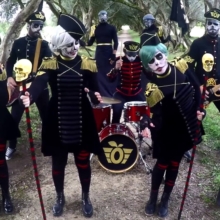Skills and competences in the teaching of translation
So this week we’re
looking at the area of skills and competencies
or competencies. Sometimes it’s
written with an IES. I don’t know why, but I’ll be saying
competencies, okay? And these are not
two separate things. You’ll see that skills are seen as part
of competencies. But first, let’s explain
how this fits in. There’s an ideal world of cogs within cogs here where before rushing in and doing your
classroom activities, which we did, you have to think about what you’re doing and why
you’re doing it. You do your
needs analysis. You’ve got this group of people who want to go there and we’re going
to help them get there. After that from the needs.
You then figure out
what competencies and skills are required to get them
what they need when they’re bad. Alright? And that’s
an intermediary step. Because after that,
we’ll see next week, next week after Easter, that you have to write learning objectives or
learning outcomes for the particular lesson or the subject or course that you’re involved in. So they can be on those
different levels.
Okay. Lesson plans,
subject, curriculum. I’m using Melvin
technology here. Okay? The course would be, for example, the Master of Applied Linguistics. The subject would be this one teaching translation and
interpreting. And the class
would be this one, the class on. So and I have to have an idea of what I’m trying to achieve
in their class, to give you the ability
to do something. Okay? Now, let me deal first with competence
as a term. Why? Because it’s
a bit of a mess.
And it’s not a term I like very much as you will see. Why is it a mess? Well, first of all, in straight linguistics, generative transformational
linguistics. Back in the early days, Chomsky had a definition of competence as the
language system. The system that’s
in your brain, as opposed to performance, which is when
you speak, okay? That’s rather like a source. You are doing long and parole if you know about the history
of linguistics. Now that’s a very clear definition of competence. The problem is that
educationalists and education theorists have not used
that definition. Okay? And the history of thought on
education goes back to terminology of skills and skills
that were there way before competence,
k-means skills.
People talked about the 1920s and
1930s. For example. Skill is just the
ability to carry out the task with
determined results. Okay? I can tie up my shoelaces
right, for example. And I could do it
quickly without a 100, you Do problems. How you
translate skills into Chinese is very clear. Yes. So we normally
translated skills in as to none.
So it’s kind of like what people trend in vocational training. So in that Secretary, so very practical skills. And we also have a term
for the right kind of corresponding term
for competence, which is nonlinear. So it’s not a stat, practical is
a kind of ability. And to do something that it’s not necessarily
a practical skill. It could be more general. So yeah, we’ll have the corresponding too wet. Yeah. Sky and
convenience. That’s good. The important thing
is that skill is the ability to
carry out a task. It’s hands-on.
You can’t do it. Although back in the day, people would talk about critical thinking
as a skill or when I was doing
literary studies. Practical explanation
of a text would be a skill
that you can do.
So it’s not necessarily
manual in that sense. It can also be
sexual skills. Okay. Now, we find these days I’m moving
forward here to the European masters
in translation. In 2017. They have this model here
where you can’t see because my
talking head is there appropriate for
their skills, competence, knowledge,
and learning outcomes, and they’re defining these terms in different ways. Now skilled means
knowing how, okay, I know I can
help to do this. I can tie up my shoelaces. I can put an S on the third person singular of the verb in English. Whereas knowledge
is knowing that. Aristotle would have
said knowing why, but knowing that
is good enough. Okay? A proven ability to use knowledge skills and personal and methodological
abilities I can. So I know that. I know that in the grammar, third person singular,
you add an S, right? I can do it, and I
know why I can do it. And then the third
part of that is aptitude, personal
virtues, okay? And those things are
not here, I think now it’s
part of that.
Competence involves
skills and knowledge and aptitude
traditionally, even though
they’ve divided up the brain into four
different things, they’re not. Skills are seen as being
part of competence. And now I’m going
to cover that competence.
What is IT? Skills, knowledge, and aptitude, are sometimes
called abilities. But aptitude is better. Why did we do this, did we have that
change from skills as Doing something
to competence? I think it’s because people started to see the role of education as
being more than getting you to be
able to do things. We realized that fit,
especially these days, you could learn everything that you have to learn. Watching YouTube videos or formally reading books, even about translation, even about Applied
Linguistics. You don’t have to
come to class. You don’t need an
educational institution to
learn the skills that you’re going to get. The educational
institution gives you thinking about
why these skills work and how they
can be improved. So there’s an
element of research evolving in developing
knowledge.
And so we started to see a university education, especially as not just
giving you skills, but giving you
the knowledge that supports the skills. This was Aristotle. We said it’s not
important to know what to do. You have to know
why to do it. And we would add
when, et cetera. Okay. And then the other
thing is aptitude. There’s a lot
of insistence. And I’m
talking about work done in the sixties
and seventies, rethinking education, about why people come into an educational
institution. It’s also they learn to communicate and
learn to socialize and learn to enter a community of
people who have a certain
professional aspect on what they do. So we find that, that kids go to school to learn how to
become citizens, for example, to
learn how to be part of society, to learn to negotiate
with other students.
Also didn’t negotiate with the hierarchical
power structures that are in the
institution. So we kept to
say education, not just being given
a way of giving you skills to know
how to do things. We have to do that. But giving you
this knowledge and aptitudes as well. In the history of
education, that, that step is quite
interesting because we had back in the sixties and seventies and higher-education a distinction between
polytechnics, which would give you
the skills you know, how to become
an electrician, how to become a plumber, but also how to
become an engineer. And then the university would not give you practical skills that would just give you the knowledge of the communicative
ability.
Since then, in the
eighties and nineties, that distinction
has disappeared. We’re all together. So the University
of Melbourne is traditionally a
research university based on knowledge
and aptitude. We do have a mastery of translation which
gives you skills. Did something like
that happen in China Yeah? So we used to have also
like polytechnics, a China man called T-cell. And we also have
universities and colleges. So several
different things. Different purposes. But nowadays the bone
grows out of the blood. And so in the
university, you can also learn translation, a very practical skill. And at the same time too, you can also get it to gray own very research-oriented discipline. An album. Now, this is just a stalled looking at the
history of the terms. I mean, why did
competence come in? In theory was put it together to
say that when a person could
do something and they do it well, they do know why and they do know the
knowledge behind it. And they can talk about it and
communicate it, which is very important.
Now, since competence, which is a term of the eighties and nineties, people in education
theory have moved on to other things like literacy, which interests me a lot. Literacy means we give you the tools and then
make decisions. Okay, I know how to read, but what you read
and what you do with that ability to
read is your concern. Health literacy. I know how to understand
what my doctor tells me and I can then make decisions
about my body. Okay. Well, people are working on
translation literacy, explaining to clients
what translation is and how to work
with a translator. Okay, So literacy has
become a big term. And then capacity and capability are also
terms that we find out. They’re increasingly aware that we give people the basic ability to then go on and do
things themselves. Because we now know that learning is a
lifelong activity. And it’s not like you’ve learned this at school or university and now you can go out and do it about.
You got to give yourself
the capacity or the capability to keep on learning as you go
through your life. People in Applied
Linguistics, have you come across these terms in your studies? Do we have anybody from Applied Linguistics then? No. Okay. It particularly pulls Gruber, professor
why linguistics? Who insists,
we’ve moved on, he says to capacity
and capability. And that the talk about skills and
competence is all okay. Now, in language, the traditional skills were speaking, listening, writing, reading,
okay, those were the four skills I hope that you do
with language. And these days I would like to add translating, but that’s a
different argument. I’m not going to
go into there now. They went out of fashion
because they were associated with what’s called deficit pedagogy.
This means that you only teach people things because they can’t do them. And so you’d make them feel bad like this
poor little girl, they’re in kindergarten
and he’s embarrassed. So we’re telling people
you have to learn what you come to
and you are bad. And therefore you have to learn this thing, okay? Often to avoid punishment
and ridicule. So the skill to
do something was not put in a set of ideas about developing
the whole person to get into a particular
place in society.
It was more like
if you can’t tie your shoelaces and
up in 10 seconds, you’re not good enough for this kindergarten.
For example. Competence, on
the other hand, is associated with a holistic view of
complex activities, and competencies, trying to educate the whole person. Not just tying
up shoe laces, but knowing how
to look good and feel good about looking good, for example. Alright, so that
was positive. Now, What’s interesting is that in Translation
Studies, which is what I’m
going to look out for the next
few slides. We got stuck
with competence. We came in, in the
seventies and eighties. We knew there was something beyond skills that
we have to look at. But we haven’t yet, we’re still talking
about competence. We haven’t gone on to
these other things like literacy
capability, and capacity. I described it very quickly. This is in German a
guy called villus. You’ve got him here. He had a very simple model of translation competence. He said, Well, you’ve
got L1 speaking, listening, all
those things.
L2 dot-dot-dot. So you’ve got
bilingual gills. And he says, well,
translators can put them all together
and coordinate them. And so there’s a
super competence, which is
adding L1 skills, L2 skills, and coordinating. Very
simple model. In 1809, though he’s
talking about skills, fetish Gaetan in Germany. And then later on he
talks about proficiency, which is a different thing. And then in that
same school, Lusher later I
was talking about strategies and Briscoe
talks about expertise. Chefs now dab talk about performance
ability as being their sense of competence. And just tried
to indicate that the terms were unstable. Although performance
ability is the way chefs describe
competence, and all of these have been associated with
that competence. But people don’t know how competence
relates to skills. This has been
a whole lot of different ideas about it. The more successful view
of often put my head down here of Translation. Competence has been
a multi-component shuttle, would I have an L there
these days? So this guy, no noise. But later on in 1994
said What we’ve got, the language competence,
the stuff that deals with talking
about the previous guy.
Plus we have to
know something about the area of activity. So if I’m translating something in the
area of medicine, I have to know something
about medicine. Plus I have to have communication skills to be able to get from L1 to L2. So he started to build
it up and say, look, it’s not just the language, things like Bill said. It’s. Area
knowledge and it’s some kind of strategic communication capacity. Okay. That was no, I bet these guys had
to him at Mason, you might have heard
of them because they’re known in Chinese
Translation Studies.
That’s basil has a team
and his younger days. Okay. They had a
similar model. They had, well,
you’ve gotta be able to process the SD. Then you’ve
gotta be able to transfer the cross. And then you’ve
got to be able to process the TT. And a lot of their work was on text linguistics. So they were talking about text analytical skills and text composition skills. The people in Spain, 1996, really wet
further with it. Okay, So this is
Dada-inspired and this is the
basis of what became the fact
they are not novel. She said, Well, its language, it’s
extra-linguistic. So the engineering of
all medical stuff, if you dig a medical
translation plus the textual stuff from
her team and Mason, plus you have to
be a professional. Okay. And know
how to act like a professional and get money and write invoices. Plus, you need the
capacity to go from L1 to L2 and
transfer knowledge. All right, a building up a model of what
translation is.
That sort of additional, we’re adding things
on over time. Marie suppressors here are actually from Barcelona like Emperor
word, Dada, and ads. You’ve got to know how
to use dictionaries. You got to know how to find knowledge, documentation,
Google stuff. We would say these days, you know the
area knowledge. You have to know how
to use instructions and you have to know
the technology to translate. And then later on, one year later she adds 0. And you have to be able
to remember stuff. And you’ve got to be
good at code-switching, which means working
between the languages as, as, in an intellectual
capacity.
And you have to
be able to block out interference
from the L1. You think, well, wow, this is ignited, start
simple. Just L1, L2, unlimited
mapping operations. And now we need
all these things. And then Roboto morale
also in Spain said, oh, and you know what else? You need common sense and you have to be
interested in the world. That was what he
means by curiosity. You have to be
an avid inquiry mind, and you have to be
able to communicate, yeah, self-criticism, efficacy, we would say these days in
educational parlance. And the meticulous and synthesized information. I mean, you can see the development
of this notion of multi-component
social competence.
Grew and grew and grew. And there’s no reason why it can’t stop growing. And often the
way they grow. And this is, my point, is people observe
students translating. That they make mistakes or they’re unable
to do things. And they convert that
into a component that has to go into the
competence model. Okay? So if some
students just are not inquiring about
the world enough to question a
particular term. Oh, they could do better. Let’s put that
into the model. So what interests me particularly is that
the way these models developed was
based on deficits. Education,
deficit pedagogy, observing what
people can’t do, assuming they should do it.
And then you put
it into the model. We then get to pack date, which is
pronounced Pacto because it’s
Catalan. And this is the model that is most cited in
Translation Studies. The catalog means
the process of acquisition of transcript of real competence
and evaluation. Led by Ricardo, who you saw on the
previous slide. This is a very
simple model, but under each of these, there’s a whole list of things that people
should be able to do. So going back to Bill’s, you’re bilingual
and you’ve got the extra-linguistic
knowledge, engineering,
medicine, et cetera. You can move language from one
side to the other. And you can use
technologies in instrumental at, you know, about translation because you’re
at a university, you get some theory
and the ideas.

This is your
personality over here. You’re able to meet deadlines and explain
things to people. And then because
it’s so complex, you have a thing in the
middle that has to exist. Your strategic
competence enables you to coordinate all
the other things. Okay, so you get a very, very complex model here. If you go underneath, underneath each one, there’s a whole list
of things that are coordinated peculiarly because I had to
invent this one there.
Okay. Now, I don’t
really like that, but it has been
very successful. It can be compared with other approaches.
Don’t care. Rally whom we’ve
mentioned a bit sees translated competence in quite different terms. He emphasized the
human aspect of it. And he says As a matter of joining communities, the educated users are
in several languages. You’re joining
the community of speakers over there. That conversant in specialized
technical fields, you’re joining
the community of engineering or the
community of Medicine. Uses of traditional tools and new technologies. You use translation
memory software or you use machine
translation, and you join the community
of computer cases. So this is the same thing but in more
humanized terms, okay? Becoming a translator means joining a whole lot of
different communities. And we might add joining
the professional of joining the community of professional
interlingual communication. That is, joining the profession
of translators.
Plus though, we might add, if you follow this view of multi-core
potential analysis, I think typing speed is really important
if you’re writing, networking, and making influential friends is
incredibly important. Dressing very well is
a big secret island. The bedding addresses
the better people like your translations. And my view of
this model is that there is no
end to the list. And as the
profession changes, particularly as
technologies change, as we’ve seen with neural machine translation. Now, the multi-component
the essential list of things will
always be behind. And so I have not
been very kind in my description of this
kind of research. Another thing is that
this is a sort of how, how can I put it? It’s a bit aleatory, it’s a bit random. For example, the European masters
of translation, monsters in translation had one model in 2003, which you can see here, which is interesting
because it’s got the same things as
everybody else. But it’s got translation
service provision. It’s got belonging
to accompany a translation company in the middle instead of
that strategic place. And then that has
become this 2017 model, which simply has a circle.
And you got language and
culture translation, technology,
Personal Learning, interpersonal and
service provision. Now what’s interesting when you go from one
to the other, you, you’ve studied this. What’s the
difference between these two models? So the main
difference I can’t see is the transmission
service from Bichon. It’s not sitting
at the center anymore and it becomes a one-off they
thought competence in the exon and me? Yes. Yes. Yeah. And
the other new area is personal and
interpersonal. So that number, whether
you have to develop communication a lot more
than anything else. Let me I may have
a translation is yes. Yeah. Let forgot to put translation and
this one over here and all the
other things, everything else is there, but not to put
in translation. Okay? Then things like
information mining have been integrated into technology. I guess so. But, it was, I mean, you’re thinking so much about the many
different things and if you get about
the basic thing, right? So bottom line, the point is that these models
are only models. And they. There is no truth in them.
None of them have been based on empirical
research. None of them side to ending empirical research is just people talking together around the table, okay? Which means that
the categories are underdetermined
by the evidence. I mean, you could have five
different models. That will all be
correct because there’s no evidence of which
we can paste them. They are all based
on consensus. I remember when that
first EMT model was presented in Brussels, always invited
to speak there. And I congratulated
the five experts, one of whom was
Dorothy Kelly. He read the textbook
that we have. The other ones
Daniel Gua **** mentioned several times. I congratulate them on a greeting among
themselves. I said consensus,
it’s great. There’s nothing.
I said there’s no scientific
evidence for this. But if you had
great, that’s good. They aim to serve
a profession. Often, if you look
at the terms of that t0 and t1 and packed, they are thinking
about producing a professional
translation or in retranslate to
or interpreter.
The model is
the competence of the competencies you require to be a professional translator
or interpreter. But you and I know that only about a third of the graduates become translators
and interpreters. So I think you
have to start rethinking most models in terms of what
people do with the things
that we teach them. Our training is
serving much, much more than just
one narrow profession. And I think that
has to go back and make us rethink
those models. The models don’t tell you how you get
better at things. There’s no
developmental aspect. There’s no
sequencing saying first you do this, then you do this,
then you do this. It’s just everything
together. But you know, when
we do activities, we put them into a
subject or intercourse. We have to think
about sequencing. And that’s not
there at all.
And then this is something that for me it’s
the most important. They were all
very good, in the developmental stage when you’re developing the whole person to be wonderful and happy and rabbits and butterflies. But a lot of the
training I’ve been doing is
a terminal degree. Like at the end
of the master, you do the master and then you’re out in
the workplace. And to be
in the workplace, you’ve got to be able
to do certain things.
And so I must admit that
when I’m training in that particular
situation and I use training is
dead of educating. I do look at errors, and I do say
skill is needed. You must correct that
particular error that you must
get better at, that you must do
it right now. So they don’t sort
of account for that import of era of, of looking at deficiencies and plugging them up. They wanted to get
away from that. But in terminal
degree, which I mean, the one before you go out into the
big wide world. There is a reason for
thinking that way. But as they did
in the 1930s, and I just said they
can’t be wrong. I can’t say any of
them are wrong. I just say, well, there are some problems
with them. This is from US
research I think if I try to move our research in our confirmation
presentation fish, that’s okay. We’re not talking
about revisiting. I mean, I
don’t want to use a multi-copy
financial model at all. But I think I do have
to think about my skills.
I want to go back to
the smaller elements, and be able to do things. Why? As we see in
this particular area, machine translation
has got much better. And we have to think
about the skills real, how to do things that translators can use
them we’ll have to use. So which skills or
automation resistant? I think it’s a very, very important
question for us now. And from that question, I go back
and look at the, at models, various
simple models here. Manual skills, are things
you do with your hands. They tend to be replaced
by machines, okay? And routine cognitive skills, like adding up are
also done by machines. If you want
automation resistance, that is an area of machine translation skill and resistance skills, one that’s going
to be valuable in our societies.
It’s cognitive
and non-routine. Now, a lot of the aspects of translation are still cognitive and
non-routine that many other aspects
are going to be lost. Now, I can only ask that kind of question and get that
kind of answer. If I’m focused on skills. From there though, you can develop
many things. Okay? So one answer
I’m interested in, over here you see
the personal and interpersonal has
been developed. Now, I’m not privy to
why that was developed, but it is a response to, for example, machine
translation. What can machine
translation not two, what can automation not do? The personal and
interpersonal dimensions. Talking with people,
adapting a text, communicating beyond
word replacement. Those are all
aspects that we have to emphasize
as one response. The other is technology, which has maintained
itself there.
We have to know how to
work with technology. But also at the time, do the things that the technology does not do. So going into skills, we can come back and look at the competence
models and, and see how they’re
changing and quite logically changing as well. I’ll finish this
presentation, always finished almost with other ways of deciding
what we should teach. Because getting
experts around the table to agree
is a nice thing, but it’s not a
very rational way of deciding what
people need. Now, in research
on translation, we have a lot of research that compares
novice translators. That is, students with professional
translators who sometimes enter via terminal second-year
master’s students. But anyway, we’ll call them experienced
or professionals. And this is
summarized by England dig a twelve it in
this book here. And we can say
that there is some evidence for
the following. The more experienced the translator and
the board day. And there’s a whole
list of things.
Use paraphrase. Process large units
they think on the level of the text rather than the
word or the phrase. Spent time reviewing. So reviewing is important, they look more at the translation
than at the St. They think
top-down from big to little rather
than little too big. That is, they think about the text and its function before deciding how to translate isolated
fragments. They have good knowledge of the world and rely
on it more than make around Googling or
using documentation. And they’re able to express their translation
principles. And they have
developed their theories about translation, about why they
do what they do. And when they
make decisions, they incorporate the client into that
decision-making process. That is, they can think about their
professional position. We thought originally that the more you do something, the less you
think about it. Like when you ride a bike and you’re experienced at
riding a bike, you don’t think, Oh, now I have to push the pedals. Or driving a car, it just happens itself. Very, very complex, but, but it becomes semi-automatized, right? That’s a common thing.
We thought that translation would be like that. We find it’s not. You find that
some problems become sort of automatic
or semi-automatic. But that professional
translators will a long time on
non-routine problems. So for a novice, everything is
problematic and they work hard on everything. For an expert, the routine stuff
is done very fast. And then there’s
a big problem. And they think more about the big problem, the
non-routine problem, which means that professionals and
not necessarily faster than
non-professionals anyway. Okay. And about attitudes, personal attitudes,
are realistic, they don’t overstate
their capacities. They have confidence in their
judgments, and they can be
self-critical.
Now. If I were
going to develop a competence model or
just a list of skills, I would look at that, those things there and say, well, at the terminal level, in master training level, those are the things
that I would want my trainees to
be able to do. Because I find that
the people who’ve done it already get better
at these things. So there’s a
developmental aspect that I like with
start rethinking it. However, if you look at it, it’s rather
fragmented.
And so I prefer to talk about skills to go back to the notion of isolated skills that
we get better at. Another empirically
based view of this is from a doctoral
thesis by Anna Lefebvre. She works at the
United Nations and she surveyed the skills and knowledge types that we’re lacking among recruits. So this is, like I
said, deficit pedagogy. Looking at what people
can’t be good at. I can’t do it at the moment I going to get better at it. So we’re looking at
new translators who go into the European
Union system or the United
Nations systems, are revised per
somebody revises, they work for two years
so they learn how to translate within
these institutions. And then this was a questionnaire
of the revises. So we just ask
for the revisions I supervised Co
supervise the thesis. So we, if you like, which of these
things are lacking? Which,
of these things do you have to train
your recruits in? And what’s interesting
is that they more or less coincide in the
two institutions.
And if you look
in the mirror, look at the United
Nations here, they all concerned,
while not all, most of them concern with writing the
translation well, writing well, and writing well in your
target language. Re-cast sentences
in the target language, and capture the
nuances. Get it. This here is an
interpretation. Work out the meaning of obscure passages, right? Which is also over here. But most of it is the
capacity to write well, so if you’re training
people to go into these kinds of jobs,
what would you do? Teach them to
write very well. Which is why I do correct your English in
your assets. Okay? What’s interesting is that we’ve thought, for example,
that technology would be very important.
Technology has changed
the profession. So technology is
required here. And we discovered, no, we look at this evidence or we look at the
previous evidence. No mention of
technology. Why not? Because when you go into the United Nations or you go into the European Union, or perhaps you go
into the system of the Ministry of Foreign
Affairs in China. I don’t know. You learn the technology. They will teach you their in-house technology. You do not need it before getting
into the job. Okay, So something’s
away down there. So to summarize,
I think that the whole debate
about competence is sort of random. Audi, a tort based on people agreeing
among those cells. It lacked a foundation in
empirical research.
There is empirical
research that we can use to rebuild some kind of
model if we want it. And I would add
in conclusion, I think it lost its way. It started to talk
about too many things. My proposal here published many years ago, in 1991, is that
translation is a skill. And all the other
things are fun. I’m not saying you
don’t need them.
Am I just saying, what is the core of the
translation skill? And then say, well,
you’ve got a problem. In the St., you mentally generate a series of different ways of
translating it. Okay, if I add
this phrase here, it could be
translated as this, this, this, and this. And because I’m a
good translator, isolate one from
that series. And I do it quickly because speed is important.
And I feel good about it. I’m confident,
feel justified, and I had some ethical
reason for doing that. And that for me is the core skill
of translation. Why? Because it concerns translation and nothing
bad translation. All the other things concern other communities. I’m interested in what is specific to this
particular community, not necessarily
the professional community. It can be a
social activity. And I can relate that to machine translation
or auto, machine translation does the generating
part well, but doesn’t do the selection
parts so well, but we can help it do
the selection part. Okay? And the ability to use this can connect with a
certain aptitude. But I’m not going to go
into that right here. And now, I think also that this
is a particular skill. I used the term competence, but I would just
stick with a skill, I think here that we can teach when we
trained translators.
But we can also teach it in any additional
language class, any classes moving
between languages. We can train people to
get better at this. So that’s my view of
translation competence.











